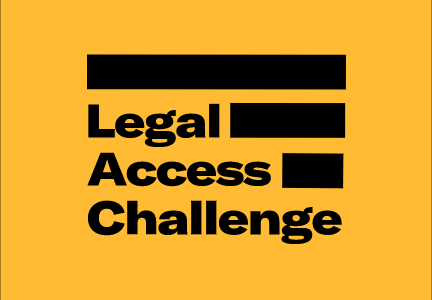Legal Access Challenge launched to encourage innovation
- Six in 10 don’t think the legal system in England and Wales is set up for ordinary people
- Many who experience a legal problem don’t take professional advice, citing cost and trust as key barriers
- Eight in 10 say it needs to be easier for people to access legal guidance and advice
- We are partnering with Nesta Challenges to launch a prize to make legal support more accessible and affordable through new technology
New research from Nesta Challenges reveals six in ten (58%) people in England and Wales think the legal system is not set up for ordinary people, with the vast majority wanting it to be easier for people to access legal support.
The research was conducted to mark the launch of the Legal Access Challenge – a new prize we are running in partnership with Nesta Challenges – which aims to help more people access legal services through new technology.
The survey also found one in seven (15%) people in England and Wales have experienced a legal issue in the last 10 years; although with only half (51%) of all respondents confident they can identify whether a problem is a legal matter, this is likely to be far higher. We know from existing data that very few people seek professional advice from a solicitor or barrister when they have a problem1, and the research showed people are instead turning to friends and family (20%) or Google (16%) for legal advice.
When asked about barriers to accessing legal advice, seven in ten (68%) say the high cost, followed by the uncertainty of the cost (56%) and knowing who to trust (37%). The vast majority (79%) believe it needs to be easier for people to access legal guidance and advice for themselves.
There is a widespread belief that technology could be the solution to this, with six in 10 (59%) saying they think technology could lead to better services to help people resolve their legal problems. People believe that the biggest benefits to using a digital service for legal advice would be having a fixed price upfront for legal fees (38%), being able to understand their rights (26%) and having access to cheaper legal advice and information (23%).
Part of our wider programme to drive innovation in the sector, the Legal Access Challenge will offer £250,000 in grants to help innovators develop new technology solutions to help make legal advice more affordable and accessible for the majority.
Chris Gorst, Head of Better Markets, Nesta Challenges, said: “For too many people, legal support and advice seems out of reach and reserved for those with the time and money to navigate a complex legal system.
“Technology is not a panacea, but in many areas of our lives it has transformed the choice, convenience and quality available to us and this could be true in legal services too. The UK is a world leader in both technology and legal services, and there is a huge economic and social opportunity in bringing these together.
“We are launching the Legal Access Challenge to help demonstrate what technology can do and to bring these new solutions to market. We want to see digital solutions that directly support individuals and small businesses to access legal services conveniently and affordably, and which can help close the ‘legal gap’ we currently face.”
Nesta Challenges is part of Nesta, the innovation charity, and offers financial prizes to stimulate innovative solutions to some of the biggest challenges society faces. The team works with regulators, policymakers and others to help make markets more competitive and open, advising on how regulatory reforms and targeted public investment programmes can work together to achieve greater impact.
Anna Bradley, Chair of the SRA Board, said: “Whether they are dealing with a personal legal matter , or running a business, people need to be able to get legal support when it really matters.
“Having access to professional advice is important at those life changing moments. And for small businesses, it can make the difference between success and failure.
“There are real barriers for people looking for help and the innovative use of technology is one way of tackling those barriers.
“We want our regulation to support new ideas. The Legal Access Challenge can help to drive the development of new approaches which will deliver tangible benefits to the public, opening up access to legal services for as many people as possible.”


